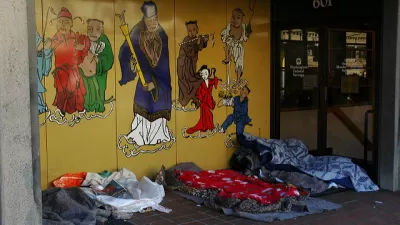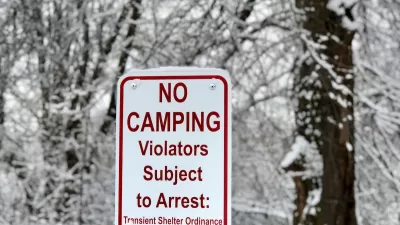The "housing first" approach to homelessness is building a track record of success in Milwaukee.
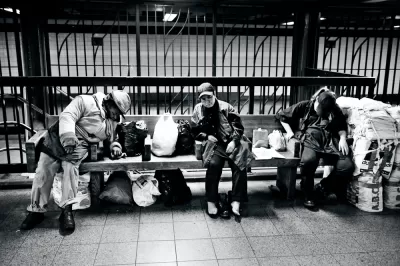
Brendan O'Brien reports on the success of the Housing First program, launched by Milwaukee County in July 2015 with funding from the city of Milwaukee, the city's housing authority, and the county. "The program has been deemed a success thus far by county officials, who say it has decreased chronic homelessness in the metro area by 70 percent," according to O'Brien. More specifically:
The last point-in-time count, a tally of local homelessness held each January, found the county had 58 chronically homeless individuals in 2016, down from 195 in 2014, the year before the program started, according to the county.
The improving homeless counts echo a similar report of the benefits of the program from December 2015, as shared by Planetizen.
The Housing First program follows a model that achieved success in the state of Utah and has begun to spread to larger cities like Los Angeles (in concept, at least). The "housing first" approach breaks from traditional policies, where "individuals would receive support services to help deal with the cause of their chronic homelessness — such as substance abuse, alcoholism or mental illness — before a home is made available to them."
The Milwaukee County program provides evidence that the housing first model can actually save money for public agencies looking to solve some of the challenges of homelessness. O'Brien explains:
In addition to the social impact the program has had, Housing First is saving taxpayer money, county officials said. The program costs about $25 a day per person, which includes an average of $17.25 in rent and $7.50 for case management services. This compared to the $110 per day that is typically spent on detainment, law enforcement and emergency room services for chronically homeless individuals, several studies have shown, according to county officials.
FULL STORY: County Cuts Homeless Population By 70%

Pennsylvania Mall Conversion Bill Passes House
If passed, the bill would promote the adaptive reuse of defunct commercial buildings.
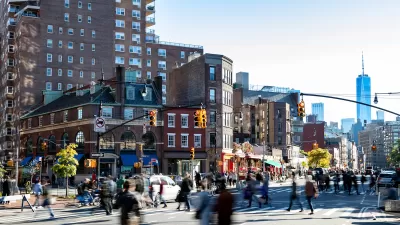
Planning for Accessibility: Proximity is More Important than Mobility
Accessibility-based planning minimizes the distance that people must travel to reach desired services and activities. Measured this way, increased density can provide more total benefits than increased speeds.
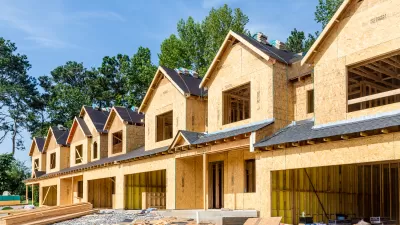
Fair Housing Cannot Take a Back Seat to ‘Build, Baby, Build’
If we overlook fair housing principles in the plan to build US housing back better, we risk ending up right back where we started.

LA Metro Board Approves New 710 Freeway Plan
The newest plan for the 710 corridor claims it will not displace any residents.

Austin’s Proposed EV Charging Rules Regulate Station Locations, Size
City planners say the new rules would ensure an efficient distribution of charging infrastructure across the city and prevent an overconcentration in residential areas.

Making California State Parks More Climate-Resilient
A recently released report offers recommendations for keeping state parks healthy and robust, including acquiring additional land for conservation and recreation.
City of Costa Mesa
Licking County
Barrett Planning Group LLC
HUD's Office of Policy Development and Research
Mpact Transit + Community
HUD's Office of Policy Development and Research
Tufts University, Department of Urban and Environmental Policy & Planning
City of Universal City TX
ULI Northwest Arkansas
Urban Design for Planners 1: Software Tools
This six-course series explores essential urban design concepts using open source software and equips planners with the tools they need to participate fully in the urban design process.
Planning for Universal Design
Learn the tools for implementing Universal Design in planning regulations.
























